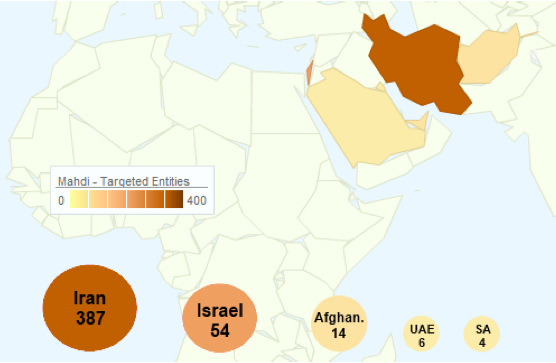Recommended Reading: salad
Sunday, July 22nd, 2012[ by Charles Cameron — a follow up to Recommended Reading: the meat, discussing the word Christianist, also an intellectual foundation for the desire to fuse church and state ]
.
In a comment on Daveed and Laurel’s post, Tim Mathews writes:
The views of a hypothetical “Christianist” yearning to fuse church and state are clearly ad hoc and usually incoherent, with little to no significant intellectual foundation. Thus, the Islamist versus Christianist dynamic seems, to me, to be an invented controversy. “Islamist” is a descriptive label applied to an agenda with an intellectual foundation. “Christianist” is a label in search of a description.
I’d like to make two comments here:
First, FWIW, the term “Christianist” already has a usage promoted by the essayist Michael Ventura, who writes in Shadow Dancing in the USA:
In following the lead of James Hillman’s work, I’m going to use “Christianism” in place of “Christianity” and “Christianist” in place of “Christian” whenever possible in an attempt to get around the enormous bias for the religion built into our very language.
This isn’t the same as using the term in parallel to “Islamist” – but it’s a usage worth noting.
As to there being “little to no significant intellectual foundation” for the desire to fuse church and state in Christianity, Rousas John Rushdoony opens his monumental Institutes of Biblical Law with the following observations:
When Wyclif wrote of his English Bible that “This Bible is for the government of the people, by the people, and for the people,” his statement attracted no attention insofar as his emphasis on the centrality of Biblical law was concerned. That law should be God’s law was held by all; Wyclif’s departure from accepted opinion was that the people themselves should not only read and know that law but also should in some sense govern as well as be governed by it. [ … ]
No less than Israel of old, Christendom believed itself to be God’s realm because it was governed by the law of God as set forth in Scripture. There were departures from that law, variations of it, and laxity in faithfulness to it, but Christendom saw itself as the new Israel of God and no less subject to His law.
When New England began its existence as a law-order, its adoption of Biblical law was both a return to Scripture and a return to Europe’s past. It was a new beginning in terms of old foundations….
You can read the complete Introduction here (.pdf).
Max Blumenthal‘s 2009 Republican Gomorrah opens with a chapter on Rushdoony, contrasting him with Billy Graham, who:
routinely urged his audiences to “create a culture with Christ at its center,” but his message was consistent with the evangelical tradition of effecting change through personal persuasion, not political imposition. … By contrast, Rushdoony’s concept of cleansing the land of sin by seizing the reins of government was genuinely revolutionary.
John Frame‘s much earlier review of the first volume (of three) of the Institutes appeared in the Westminster Theological Journal 38:2 (Winter, 1976), 195-217. It offers the uninitiated reader a decent overview of the book:
Rushdoony not only acknowledges biblical authority, knows the Bible, and knows our cultural situation; he is also able to apply biblical principles to our culture in creative and cogent ways. Rushdoony has grasped a hugely important point that theologians rarely acknowledge, namely, that theology must involve the application of the word of God to the whole world. Otherwise, theology is a “lie,” testifying that God himself is irrelevant (p. 597; cf. pp. 308, 652ff). The Institutes, therefore, presents a plan for the reformation of all aspects of human society in accord with biblical law. Rushdoony advocates this reformation in various ways:
(a) He sets forth eloquently the beauty of a society governed by biblical law: a society where the power of the state is strictly limited (pp. 429f, passim); where eminent domain belongs to God alone, not to the state (pp. 492f, 499ff); where there are no property taxes (pp. 56, 283), no expropriations beyond the tithes (pp. 846ff), but where welfare is effectively provided through covenantal institutions; where all citizens expose and prosecute criminals (pp. 271, 463ff); where criminals are responsible to make restitution to their victims (p. 272); where crime is rare because habitual and serious offenders are promptly executed and because others are caught and forced to make restitution, a society without prisons and the farce of pseudo-rehabilitation (pp. 228ff, 458ff, 514ff); where war is not permitted to take precedence over every other human activity (pp. 277ff); where the environment is protected by following the instructions of its Creator (pp. 141ff, 164ff).
(b) Where the biblical laws at first glance appear not to be so beautiful, but rather (to our humanist-indoctrinated minds) to be strange, trivial, or even cruel, Rushdoony effectively explains the divine logic underlying them. The denial of full citizenship to eunuchs (p. 100), the execution of blasphemers (pp. 106ff) and incorrigible juvenile delinquents (pp. 185ff, 48lff), the prohibition of taking a mother bird together with her young (pp. 169, 257, 267), the levirate (pp. 308f), the dowry legislation (pp. 185ff, 48lff) and other perplexing biblical statutes are cogently defended.
(c) Besides showing the inherent logic of biblical law, Rushdoony shows how that biblical law has been used through history, how its observance has brought about justice and happiness in many societies, and how its abandonment has brought about cultural disaster. He is quite specific with regard to American culture, and advocates dramatic changes in our legal and institutional structure. His strongest and most frequent polemic is against “statism,” the view that the state has the right to tax, control, and disturb all areas of human life. In that regard, his rhetoric closely resembles that of political conservatism which, indeed, he acknowledges as resting on Christianity to an extent (p. 289). Yet he strongly opposes laissez faire capitalism (pp. 288ff, 432f, 472) as a deification of the abstract laws of economics. Rushdoony’s proposals really do not fit very well under any contemporary label, and that in itself is an index of his zeal to follow Scripture rather than to please men.
Finally, I’d suggest that Rushdoony has more influence than many would like to admit these days – hence Caleb Hayden‘s comment in his Amazon review:
Rushdoony influenced many prominent and visible leaders in Christian circles today, even though many of these men are afraid to identify with him for fear that their reputations will be tarnished. Most people do not want to be thought of as radical, but Rushdoony had a different mentality. That is why, love him or hate him, a student of theology, philosophy, history, and law can greatly benefit from Rushdoony’s distinctly Christian analysis and critique of society.
See also, Jeff Sharlet, The Family, pp. 347-351.
In a second follow up, I’ll present a case where similar governmental practices resulted from arguable similarities between particular Christian and Islamic worldviews, and offer a comment on the degree to which even jihadists may not be directly attempting world conquest in the name of Islam.







